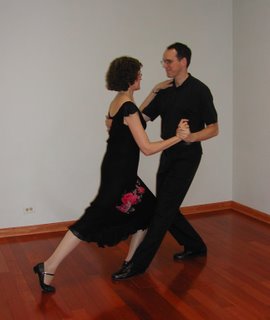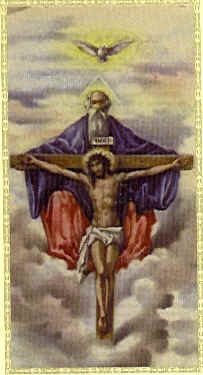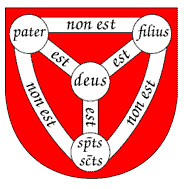Fr. Z wants to talk about "consubstantialem Patri"...
... but some of us are not through with pro multis, yet.
(Guiding a discussion amongst bloggers is like herding cats).
Comments from RBrown in bold, my replies in normal font:
“The mistranslation of pro multis into for all does not change the meaning of the consecretory words, which are the words that signify the matter—Hic est calix sanguinis mei (that which signifies) and wine (the matter which is to be signified).
NB: In the account of the institution of the Eucharist found in Luke and St Paul (1st Cor), there is no mention in the consecration of Blood of pro anyone. Are we to say that Luke and Paul were saying invalid masses?”
St. Thomas Aquinas in his Catechism taught:
The form of this Sacrament is the very words of Christ, “This is My Body,” and “This is the chalice of My Blood of the new and eternal testament; the mystery of faith; which shall be shed for you and for many, to the remission of sins.” According to St. Thomas, the consecration includes the mistranslated words.
St. Paul and St. Luke have pro vobis (“for you”). But neither claims to be providing a missal. They do not claim to be providing a complete transcript of our Lord’s words at the Last Supper, either. They do include some of His words, and pro universis is not among them, so neither provides justification for putting the words “for all” into our Lord’s mouth at the consecration.
Comment by Anonymous — 21 November 2006 @ 8:19 pm
+++
RBrown, Are you saying that I have inaccurately quoted the Catechism of St. Thomas? I provided a link to a translation, and quoted from the first paragraph, where St. Thomas teaches that the form for the consecration of the wine is “This is the chalice of My Blood of the new and eternal testament; the mystery of faith; which shall be shed for you and for many, to the remission of sins.”
He teaches exactly the same in the article from the Summa which you quoted. Just before the part you quoted, St. Thomas writes:
Some have maintained that the words “This is the chalice of My blood” alone belong to the substance of this form, but not those words which follow. Now this seems incorrect, because the words which follow them are determinations of the predicate, that is, of Christ’s blood. Consequently they belong to the integrity of the expression.
And on this account others say more accurately that all the words which follow are of the substance of the form down to the words, “As often as ye shall do this,” ...
Consequently it must be said that all the aforesaid words belong to the substance of the form…
St. Thomas then describes the purpose of of the various words which together constitute the form of the sacrament. Note that he says that all of the words up to and including “remission of sins” are part of the form, not just the part that denotes the change of wine into blood.
In objection 2 of this article St. Thomas considers the possibility that the form is simply the words “This is the chalice of My blood”, without the words that follow, but he rejects this theory.
And please also note objection 1 with its reply, where St. Thomas affirms the longer form as the proper form.
1. The writings of Paul and Luke are part of Revelation, from which any missal is composed.
True enough, but that still does not mean that the Gospel of St. Luke, or St. Paul’s Letters to the Corinthians are themselves missals.
I never justified the use of “for all”. In fact, in an earlier thread…
Good. We agree that “for all” is an incorrect translation of both the Latin and the Greek and ought to be fixed.
Comment by Michael — 22 November 2006 @ 7:03 am
+++
The question, to which I first responded, was whether the use of “for all” renders the Sacrament invalid. My point is that the Pauline-Lukan consecretory formula is evidence that it does not.
Luke 22:20 and 1 Corinthians 11:25 are partial quotes of our Lord’s words at the last supper, taken from documents that were not written for use as liturgical texts. It is not self-evident that they are adequate as consecretory formulae.
Even if they are, that merely shows that the words “for many” can be omitted; it does not demonstrate that the words “for all” can be added.
I am not attempting to argue that “for all” renders the consecration invalid. My point is to argue that the words “for all” are part of the consecretory formula of the Novus Ordo as currently translated into English. You said the consecratory words are “Hic est calix sanguinis mei”. St. Thomas by contrast, seems to indicate a longer formula—the same formula, in fact, cited by Pope St. Pius V in the question that Ioannes asked above.
Comment by Michael — 25 November 2006 @ 7:18 am
+++
To me the best translation is “for the multitude”.
In the comments on another article in Father Z’s blog, someone said that “for the many” in Greek would be περι των πολλων. But Matthew 26:28 in Greek (see here or here) has just περι πολλων. Are you sure that the “the” in your best translation is justified?
Comment by Michael — 25 November 2006 @ 7:20 am
+++
ST, III, 78, 1: ...the form of this sacrament implies merely the consecration of the matter, which consists in transubstantiation, as when it is said, “This is My body,” or, “This is the chalice of My blood.”
What do you say St. Thomas meant when he said in ST, III, 78, 3: “others say more accurately that all the words which follow are of the substance of the form down to the words, ‘As often as ye shall do this’, ...”?
In that sentence St. Thomas concisely states which words are in the consecration.
In your comments on the 2nd objection, I think you have already agreed that the teaching of St. Thomas is that the form for the consecration extends from “Hic est calix sanguinis mei” to “effundetur in remissionem peccatorum”:
The 2d objection makes two arguments: First, that “Hic est enim calix sanguinis mei” is a valid consecration; Second, that those words comprise the entire form. St Thomas only rejects the second argument.
I don’t see in his reply any affirmation that “Hic est calix sanguinis mei” by itself is sufficient, but even if it were, that would be irrelevant since the Novus Ordo consecration has more than that; the rest of the words have to be taken into account. By emphasizing that “for all” or “for many” is part of the consecration, my hope is to emphasize the seriousness and importance of getting these words right.
In ST, III, 78, 3, ad 1, St. Thomas offers the objection that the following is not the proper form: “This is the chalice of My blood, of the New and Eternal Testament, the Mystery of Faith, which shall be shed for you and for many unto the forgiveness of sins.”
In his reply, he uses only the words “This is the chalice of My blood” to stand for the whole expression. That he means the whole expression is evident from the objection he is answering, and from the title of the section (notice the et cetera), and from the paragraphs immediately preceeding this reply, particularly where he says that the substance of the form includes all the words down to but not including “As often as ye shall do this.”
Getting back to article 1, it seems that there too he was using the shorter phrase “This is the chalice of My blood” to stand in for the unwieldy whole. Otherwise, there is a discrepancy between what he says in articles 1 and 3.
It is article 3 that considers the words actually used for the consecration of the wine. Article 1 deals with the question of whether other parts of the Mass and Last Supper ought to be considered part of the consecration.
Comment by Michael — 25 November 2006 @ 7:30 am
+++
BTW, I am unaware of any catechism written by St Thomas.
According to the translator’s preface found here, the Catechism of St. Thomas Aquinas is for the most part a collection of sermons the Angelic Doctor delivered in the last year of his life (+ 1274). However, the part we are interested in, the “Explanation of the Seven Sacraments” is the second part of a treatise, “De fidei articulis et septem sacramentis,” which St. Thomas wrote at the request of the Archbishop of Palermo in 1261-62. The Catechetical Instructions of St. Thomas were used in the thirteenth and fourteenth centuries as manuals and textbooks for priests and teachers of religion.
“pro multis” is analogical, including two distinct concepts: (1) That Christ died for all (de fide); and (2) that it does not exclude the possibility the number saved is only rather a few (this is the opinion of St Thomas).
I’m not sure how “pro multis” carries the meaning of “for all”, even as a secondary meaning, if you read it as a translation of St. Matthew’s περι πολλων. According to this individual, claiming to hold a PhD in Greek, the Oxford Greek-English Lexicon’s definition of polus runs over two pages, with a variety of synonyms listed, but no “all” or even “multitude”. Similarly, in this article, the author notes that Liddell and Scott’s standard Greek Lexicon lists many nuances of meaning with examples drawn from a variety of sources, but “all” is not amoung the possible meanings listed for πολλοί.
Thank you for your recommendation of ST, III, 60. I have not read that part of the Summa before, but will.
Comment by Michael — 25 November 2006 @ 7:36 am
+++
Michael: The problem here is that in translating the consecration formula the Church is not intending mainly to translate Scripture. The Church needs to provide a translation of the consecration formula. The Latin liturgical text constitutes its own starting point. The Church needs to consider the Latin text, not a Greek text, read certainly with the twin lenses of Scripture and also Tradition.
Comment by Fr. John Zuhlsdorf — 25 November 2006 @ 7:56 am
+++
If the new translation is an accurate translation of the Latin text, as read with the twin lenses of Scripture and Tradition, I will be happy.
Labels: consubstantialem, other blogs, pro multis




